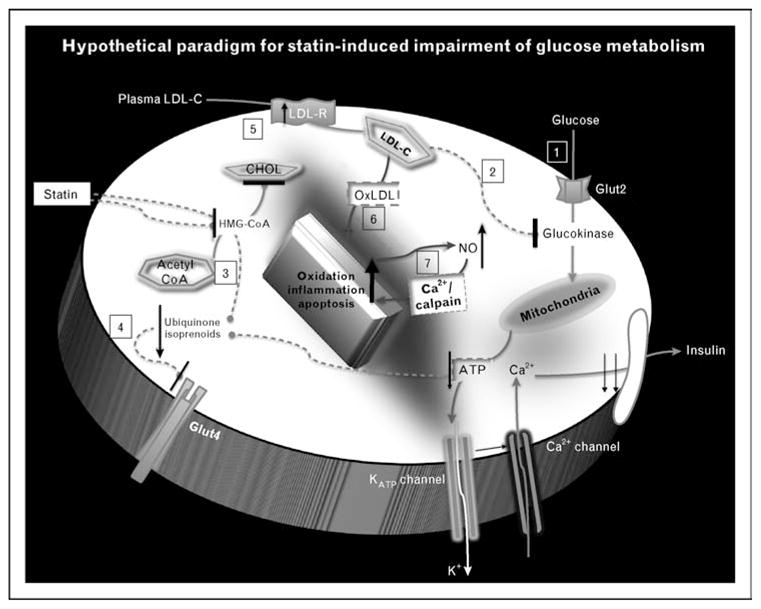Figure 1. Hypothetical paradigm for statin-induced impairment of glucose metabolism.

(1) Intracellular arrival of glucose via glucose transporter (Glut2 in β-cells) leads to phosphorylation by glucokinase, and routing to the metabolic pathway. The resulting cascade of closure of ATP-dependent potassium channel, depolarization, and calcium influx leads to insulin secretion; this process may be inhibited by statins [23,24]. (2) Glucokinase is inhibited by abundance of plasma cholesterol [28•], and thus is conceivably affected by statin-induced inhibition of de-novo cholesterol synthesis with increased uptake of plasma LDL. (3) Statin inhibition of HMG-CoA reductase suppresses synthesis of ubiquinone (CoQ10), an essential factor in the mitochondrial electron-transfer system, resulting in inhibition of insulin secretion due to reduced production of ATP [25]. (4) Statin inhibition of HMG-CoA reductase suppresses the synthesis of isoprenoids, thus causing downregulation of Glut4 expression on adipocyte cells, leading to impaired glucose uptake. (5) The inhibition of HMG-CoA reductase causes upregulation of LDL receptors, leading to enhanced uptake of LDL-cholesterol in an effort to replenish intracellular stores. However, the intracellular fate of plasma-derived LDL-cholesterol may be distinct from that of de-novo synthesized cholesterol. (6) The oxidation of LDL-cholesterol may incite an inflammatory cascade that compromises the functional – for example insulin secretion apparatus – and ultimately structural integrity of the islet β-cells. (7) Furthermore, cytokine-induced over-production of nitric oxide (NO) has been shown to induce β-cell apoptosis via the activation of calpain – a calcium-dependent protease [29]. ATP, adenosine triphosphate; CHOL, cholesterol (de-novo synthesized); Glut2, glucose transporter 2; Glut4, glucose transporter 4; HMG-CoA, 3-hydroxy-methylglutaryl coenzyme A; LDL, low-density lipoprotein; LDL-C, low-density lipoprotein cholesterol (plasma-derived); LDL-R, LDL receptor; OxLDL, oxidized LDL; NO, nitric oxide.
